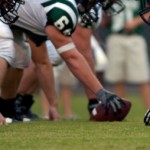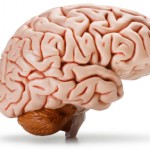In my last post I wrote about the immediate risk to our youngsters, that of traumatic brain injury (TBI). Now I'd like to move on to an even grimmer issue, much more severe and long-lasting brain damage that's also trauma-associated. We've heard of professional football players developing personality changes, then more severe neurological problems; most recently I read of a professional hockey player who had similar issues.
So I found the Boston Center for the Study of Traumatic Encephalopathy (that term translates as "disease, damage or malfunction of the brain."), and read one of their major publications on what is called Chronic Traumatic Encephalopathy (CTE). Trust me, most of the medical jargon it uses is tough even for a Internal Medicine subspecialist. It was published in a journal I've never heard of, J Neuropathol Exp Neurol, but is very well written and, in addition to detailing the brain changes in 48 cases of CTE, provides an excellent background discussion of the entity. Ninety percent of the neuropathological confirmed cases of CTE were in athletes.
I remembered a story in 2009 of a 26 year old Cincinnati Bengals receiver who had died after falling out of a pickup truck during a domestic quarrel, reviewed the recent New York Times piece on a 260+ pound NHL "enforcer" who died of a combined alcohol and painkiller overdose and found another Times article, this one from May of 2011, about a former Chicago Bears defensive back who had committed suicide and donated his brain to the Boston research center. All three had CTE.
That article said about two dozen retired NFL players were eventually found to have this disease; the research article mentions that over one-sixth of those having repetitive brain injuries called concussion or mild TBI eventually will go on to have CTE .
But we're not just speaking of football players or hockey players. Professional wrestlers, soccer players, domestic abuse victims, military veterans, horseback riders, seizure victims, head bangers as well as boxers and hard-form martial arts participants may well have similar recurring brain trauma and potentially could go on to CTE.
The NFL donated $1 million in 2010 to CSTE, the Boston University research group; researchers at the center have lined up 100 former players to try to find ways to diagnose the condition during life and more than 250 active and retired NFL players have agreed to donate their brains and spinal cords to the CSTE.
Nearly 100 are suing the league over the issue of player safety, saying the NFL has down-played the concussion problem to give fans more action. A knowledgeable friend told me the NHL allows bare-fisted fights between its enforcers and others to go on for roughly fifteen seconds; he said the audience loves the brutality.
Bread and circuses were a way to keep the Roman populace from revolting. Why are we emulating them?





